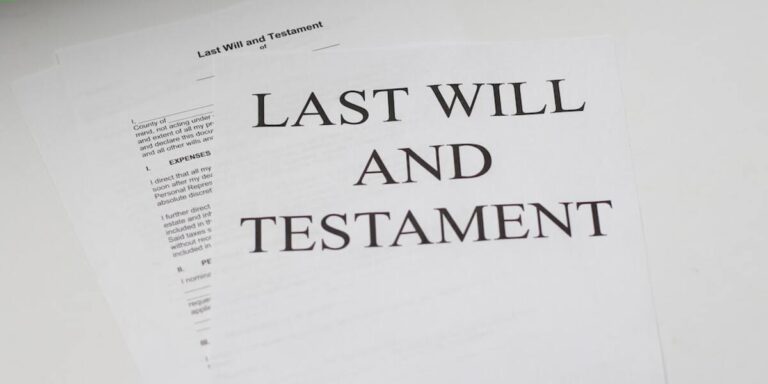Can executor sell property without all beneficiaries approving in Florida?
If you are a beneficiary of an estate in Florida and have questions about whether or not the executor can sell property without all beneficiaries approving, it is important to consult with a Fort Lauderdale probate litigation lawyer. A knowledgeable attorney will be able to provide advice on your legal rights as well as any potential risks associated with selling property from an estate without approval from all beneficiaries.
In general, when someone passes away leaving behind assets such as real estate or other valuable items, those assets must go through the process of probate before they can be distributed among heirs and/or creditors. This includes obtaining court approval for certain transactions like sales that involve these properties; however there may also be exceptions depending on how the decedent’s last will was written up prior to their death. In this blog post we discuss some key points regarding what happens if one wishes to sell inherited property in Florida but not everyone agrees – including information related specifically towards cases involving multiple beneficiaries who do not unanimously agree upon said sale(s).
Understanding the Laws Surrounding Property Sale Without Beneficiary Approval in Florida
Property sale without beneficiary approval in Florida is a complex process that requires the help of an experienced Fort Lauderdale probate litigation lawyer. When it comes to selling property after someone has passed away, there are several laws and regulations which must be taken into consideration before proceeding with any transactions. It’s important for beneficiaries to understand these laws so they can make informed decisions about how best to handle their inheritance or estate assets.
In order for a property sale without beneficiary approval in Florida to take place, certain requirements must first be met according to state law. The court will need proof that all parties involved have been notified of the proposed transaction and given ample opportunity for objection if desired; this includes notifying both heirs as well as creditors who may hold claims against the deceased’s estate at time of death or prior thereto. Additionally, each party should receive full disclosure regarding what exactly is being sold along with its current market value; proper appraisal documentation from qualified professionals may also be necessary depending on circumstances surrounding particular case scenarios . In some cases where multiple co-owners exist , unanimous consent amongst them might even be required before such sales can move forward . Lastly , proceeds from said sales must ultimately go towards settling outstanding debts associated with decedent’s estates (if applicable) followed by distribution among rightful heirs per terms outlined within Last Will & Testament document(s).
Exploring Alternatives to Selling Property without All Beneficiaries’ Consent in Florida
In Florida, when a decedent passes away and leaves behind real property that is owned by the estate, it can be difficult to determine how best to proceed with selling or transferring ownership of such assets. In some cases, all beneficiaries must agree before any sale or transfer takes place; however in other instances there are alternatives available for those who wish to avoid probate litigation while still ensuring everyone’s rights are respected. It is important for anyone dealing with these issues in Fort Lauderdale and throughout Florida to understand their options so they can make informed decisions about what course of action works best for them.
One option involves creating an irrevocable trust which allows one party (the trustee) full control over the asset without requiring consent from all beneficiaries. This type of arrangement may also provide certain tax benefits as well as protection against creditors if necessary. Additionally, it could allow heirs access income generated by the asset during its lifetime but prevent them from making changes regarding its disposition after death until specific conditions have been met – like paying off debts owed on behalf of the deceased person’s estate first . Another alternative would involve utilizing a deed restriction agreement whereby each beneficiary agrees not only upon terms governing disposal/transferring ownership but also limits use-rights associated with said property prior to being sold/transferred out right . Ultimately , both strategies offer viable solutions where obtaining unanimous consent amongst multiple parties proves impossible yet achieving desired outcomes remains paramount – something every Fort Lauderdale Probate Litigation Lawyer should consider carefully before proceeding down either path .
What are the Consequences of Executor Selling Property without All Beneficiaries Agreeing?
The executor of an estate has a legal obligation to ensure that all beneficiaries are treated fairly and equitably. This means they must follow the terms of the will, as well as applicable state laws regarding probate proceedings. When it comes to selling property without consent from all parties involved, there can be serious consequences for both the executor and any beneficiary who was not consulted in advance.
For starters, if an executor sells real or personal property belonging to a deceased person’s estate without first obtaining permission from each beneficiary named in their will (and/or other relevant documents), this could result in civil litigation against them by those affected individuals. In addition, such actions may also lead to criminal charges being brought against them depending on where they live and how much money is at stake with regard to said sale(s). Moreover, even if no lawsuit ensues after-the-fact; executing transactions involving assets owned by another party prior authorization constitutes fraud which carries its own set of penalties under most jurisdictions’ penal codes including fines & jail time . Finally , when dealing with Fort Lauderdale Probate Litigation Lawyers ; ignorance does not equate innocence – so you should always consult one before making decisions about disposing inherited properties .
When Should You Seek Professional Legal Advice for Fort Lauderdale Probate Litigation Matters?
Probate litigation is a complex legal process that can be difficult to navigate without the help of an experienced attorney. When you are dealing with probate matters in Fort Lauderdale, it is important to understand when seeking professional legal advice may be necessary.
One situation where consulting with a qualified lawyer could prove beneficial is if there has been any kind of dispute over how assets should be distributed or who should receive them after someone passes away. A knowledgeable and skilled litigator will have experience resolving these types of disputes through negotiation or court proceedings, ensuring all parties involved get their fair share according to Florida law.
Another instance where hiring an attorney might make sense would involve cases involving contested wills or trusts—such as those which contain ambiguities regarding beneficiary designations or other provisions contained within the document itself. An experienced lawyer can review the documents thoroughly and provide guidance on what steps need to taken in order for your interests (or those of another party) to remain protected throughout this type of proceeding so that justice prevails in each case brought before courts located within Broward County jurisdiction area .
Frequently Asked Question
-
Can executor sell property without all beneficiaries approving in Florida?
-
What out of pocket expenses can an executor claim?
-
Who can be a personal representative of an estate in Florida?
-
Can an executor override a beneficiary in Florida?
-
Can the executor sell a house that is in probate Florida?
-
How do I file probate without an attorney in Florida?
-
Does probate require a lawyer in Florida?
-
What is probate code 733.613 in Florida?
-
What does an executor have to disclose to beneficiaries in Florida?
-
What is the compensable value of an estate in Florida?
An executor can sell property in a case without obtaining the approval of all beneficiaries. The executor must inform all beneficiaries of the intention to sell the property, but they don’t have to agree to the transaction.
The executor can claim reasonable expenses incurred in the administration from the estate. They are expenses they paid from their personal pocket. These expenses must prove that the executor has benefited both the estate and its beneficiaries. There are no rules about what executor expenses can be.
A person who has attained the age of 18 and is a Florida resident at the time the death occurs is eligible to serve as personal representative. See, 733.302, Fla. Stat.
An Executor can’t alter the Will or testament of the deceased. Executors are bound by fiduciary duty to protect the estate of the beneficiaries, to administer probate transparently, to distribute the inheritance to beneficiaries, and to uphold the rights of the public.
Although you might believe that you must wait for the probate process to complete before you can sell your loved ones’ home after they have died, this is not true. Florida law allows the heirs of a deceased person to sell their home prior to the end of probate.
Filing the Petition. The petition should be filed at the circuit court in the county where deceased persons lived at time of death. The court will issue you a Letter of Administration once your paperwork are complete. This letter is usually issued within one month.
Are there any Florida probate lawyers I need? A Florida Probate Lawyer is required in nearly all cases. A Florida attorney is required to assist with any dispositions that are not subject to administration, such as small estates or estates where the executor (personal representatives) is the only beneficiary.
Until the court approves or confirms sale, no title will pass. Before the sale order is issued, no bona fide buyer shall have to inspect any proceeding.
Executors must provide certain information to beneficiaries. These include an appraisal and inventory of estate assets, and an accounting of estates. This information should contain such details as: A list of all estate assets, and the value of each at the time the deceased died.
This compensation value is calculated as the sum of all the assets in the probate estate and income received by the estate during administration.
Conclusion
In conclusion, it is important to remember that an executor cannot sell property without all beneficiaries approving in Florida. It can be a complex process and having the right Fort Lauderdale probate litigation lawyer on your side will make sure you are following the correct legal steps when handling estate matters. If you need help finding a qualified attorney for this type of situation, our website provides trusted links and reviews from experienced professionals who specialize in these types of cases. With their assistance, navigating through any potential issues with ease so that you can get back to enjoying life as soon as possible!





